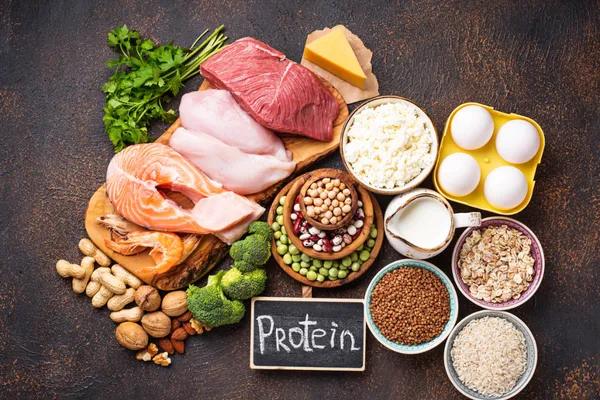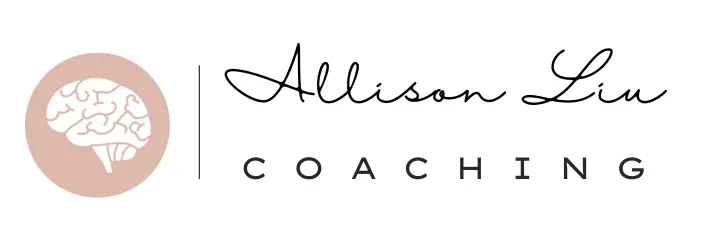
Why Protein Is Essential For A Healthy Brain And How To Get Enough
"It may come as a surprise to learn that the only component of your body more abundant than water is protein." - Dr Daniel Amen, psychiatrist and author of Memory Rescue.
When most people think about protein, they picture bodybuilders with big muscles or athletes drinking protein shakes. But did you know your brain depends on protein just as much as your muscles do?
From the way you feel emotionally, to how sharp your memory is, to how much energy you have throughout the day - protein plays a surprisingly big role. In fact, you could think of protein as the construction material your brain uses to keep its “building” strong and working well.
In this article, we’ll explore why protein is so important for your brain, how your needs change at different stages of life, and easy ways to make sure you’re getting enough every day.
Why Your Brain Needs Protein
From a brain perspective, protein plays four powerful roles:
Neurotransmitter production: Amino acids from protein are used to make brain chemicals like serotonin (for mood), dopamine (for motivation and focus), and GABA (for calm and balance). Without enough protein, your brain can literally run short on the raw materials it needs to think clearly and regulate emotions.
Hormone balance: Hormones like insulin and thyroid hormones are built from or regulated by amino acids. These affect energy, mood, and how efficiently your brain cells use fuel.
Blood sugar regulation: Have you ever had a carb-heavy meal and then felt drowsy or foggy a couple of hours later? That’s the effect of blood sugar spiking and then dropping. Protein slows digestion and helps keep blood sugar on an even keel, so your brain gets a steady supply of fuel.
Supporting strong muscles (which protect the brain): Muscle mass isn’t just about strength - it also helps regulate blood sugar, improve circulation, and even lower dementia risk. The amino acids from protein are essential for building and maintaining healthy muscles as you age.
If you don’t eat enough protein in your diet, your brain simply can’t make the neurotransmitters and hormones it needs. That’s why protein is so important for mental clarity, stable mood, and resilience.
Amino Acids: The Brain's Building Blocks
When you eat protein, your body breaks it down into smaller parts called amino acids. These are like Lego bricks your brain and body can snap together to build what they need - whether that’s brain chemicals for mood and focus, hormones for energy, or muscle tissue for strength.
Out of the 20 amino acids your body uses, 9 are called “essential.” Your body can't make these and must get them from food. If even one of them is missing, your brain can’t work at its best.
That’s where the idea of complete vs. incomplete proteins comes in:
Complete proteins give you all 9 essential amino acids in good amounts. These are mostly animal-based foods like eggs, fish, poultry, dairy, and meat, plus a few plant-based stars like quinoa, soy, and buckwheat.
Incomplete proteins are missing one or more essential amino acids. Many plant foods, like beans, lentils, nuts, and grains, fall into this category. But the good news is that if you eat a variety (for example, beans with rice, or hummus with whole-grain pita), you can easily cover the gaps.
How Much Protein Do You Need?
Your protein needs aren’t static - they shift depending on your age, lifestyle, and health. Here are some general guidelines:
Most adults: At least 0.8 grams per kilogram of body weight per day (about 55–60g for someone weighing 70kg / 11 stone).
Active adults or people in midlife: 1.0–1.2 grams/kg. Getting a bit more helps preserve muscle and brain health as you get older.
Older adults (60+): 1.2–1.5 grams/kg. Higher intake supports muscle strength, immune health, and protects against cognitive decline.
Very active people, or recovering from illness: Up to 2.0 grams/kg can be helpful.
A simple rule of thumb: try to include some form of protein in each meal, rather than cramming it all into dinner. This steady supply is better for your brain and body.
It’s important to remember that the amount of protein in a food is not the same as the weight of the food itself. For example, 100 grams of cooked chicken doesn’t contain 100 grams of protein - it provides closer to 30 grams. In the chart below, the protein values are shown per weight or volume measure (such as per ounce) to give you a clear idea of how much protein each food actually delivers.

Plant foods can also be excellent protein sources, though the amount per weight is usually lower than in animal foods. Again, keep in mind that the chart shows protein content by standard weight or cup size, not by what might be considered a “typical portion.” This makes it easier to compare foods side by side.

Whether you prefer animal proteins, plant proteins, or a mix of both, the key is variety. Choosing different sources across your week ensures you’re getting all the essential amino acids your brain needs, while also benefiting from the unique nutrients each food provides. Once you know the protein content of different foods, the next step is understanding how much you actually need each day.
Easy Ways to Boost Protein in Your Diet
If you suspect you’re not getting enough protein, here are some practical swaps and additions you can make:
Breakfast
Replace sugary cereal with scrambled eggs, an omelette, or overnight oats made with Greek yogurt.
Add a scoop of protein powder to a smoothie with berries and spinach.
Top wholegrain toast with nut butter and chia seeds.
Lunch
Use beans, lentils, chickpeas, or tofu as the base of salads and soups.
Add boiled eggs, edamame, or cottage cheese for an extra protein punch.
Choose wholegrain wraps or bowls with grilled chicken, turkey, or salmon.
Snacks
Keep it simple with boiled eggs, roasted chickpeas, hummus and veggie sticks, or a handful of nuts.
For a sweet option, try chia pudding made with milk or yogurt.
Small, consistent steps like these can make a big difference to your energy, focus, and long-term brain health.
A Reflection For You
Take a moment to think about your own diet: are you getting enough protein to truly support your brain? Many people eat plenty of carbs and fats, but their protein intake is surprisingly low.
Consider whether your meals include good-quality protein sources, and whether you’re spreading that protein evenly across the day - especially at breakfast and lunch. Remember, this about giving your brain the building blocks it needs to thrive.
By making protein a regular part of your brain health strategy, you’ll be investing in clearer thinking, steadier energy, and resilience for the years ahead.






